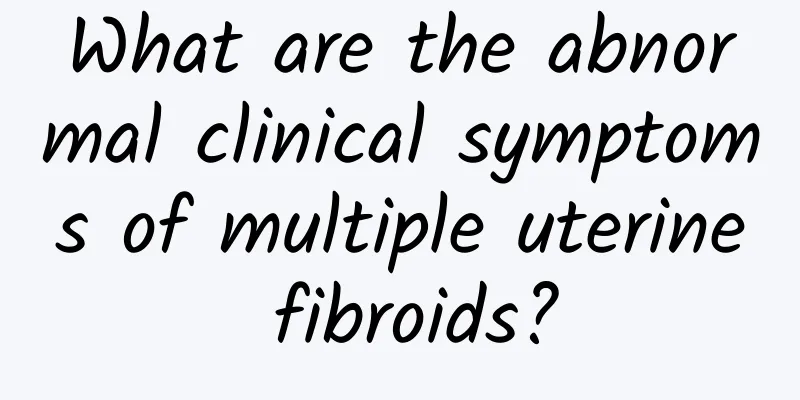What are the symptoms of late-stage habitual miscarriage? How to treat habitual miscarriage?

|
If a pregnant woman enters the late stage of habitual miscarriage during pregnancy, it is easy to cause increased vaginal bleeding and aggravated lower abdominal pain. Failure to preserve the fetus in time will cause the expulsion of the pregnancy products in the uterus, resulting in the termination of pregnancy. Patients can treat habitual miscarriage through the combination of Chinese and Western medicine to avoid the occurrence of secondary miscarriage. Every woman hopes to be a loving mother, but not every woman can do so. Due to physical problems, some women will have habitual miscarriages, and even if they are pregnant, there is a high chance of miscarriage. So what are the symptoms of late-stage habitual miscarriage? |
<<: How to check for habitual miscarriage? There are 5 items
>>: How to protect the fetus in case of habitual miscarriage? There are 6 ways to do it
Recommend
Is biochemical abortion harmful to the body?
Biochemical pregnancy miscarriage refers to a spo...
What is bacterial vaginosis? Most people don't even know it
Bacterial vaginosis is the most common lower repr...
Can I continue to be pregnant if I am diagnosed with gynecological inflammation?
Can you still get pregnant if you are diagnosed w...
Experts please tell us about the complications of abortion
There are many things that patients who have unde...
Introduction to several effective dietary treatments for irregular menstruation
Diet therapy is a safe and reliable treatment for...
Are premenopausal changes in menstruation dysfunctional uterine bleeding?
Dysfunctional uterine bleeding refers to bleeding...
Life-saving foods to prevent colorectal cancer! Cabbage and garlic can fight cancer
Variety show king Zhu Geliang was recently admitt...
What exercises can improve uterine prolapse?
Uterine prolapse can be improved through exercise...
Save your postpartum baggage by learning from Xiao S and using a belly band
Xiao S, an artist who has given birth to three ch...
What are the symptoms of tuberculous cervicitis? 2 pathological causes of tuberculous cervicitis
Cervicitis is a common gynecological inflammation...
Chronic cervicitis has three main symptoms
The symptoms of chronic cervicitis are difficult ...
What causes uterine effusion?
Uterine effusion is also called intrauterine effu...
How to Identify Pelvic Inflammatory Disease
How to identify pelvic inflammatory disease? Pelv...
Experts answer bad habits that may cause vaginitis
It is understood that bad habits are the main cau...
Experts tell us what are the treatments for female cervical hypertrophy?
Cervical hypertrophy is a type of cervical diseas...









